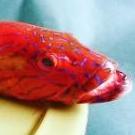-
Welcome to the eG Forums, a service of the eGullet Society for Culinary Arts & Letters. The Society is a 501(c)3 not-for-profit organization dedicated to the advancement of the culinary arts. These advertising-free forums are provided free of charge through donations from Society members. Anyone may read the forums, but to post you must create a free account.
The other Mediterranean
-
Similar Content
-
- 85 replies
- 5,199 views
-
- 22 replies
- 7,109 views
-
- 300 replies
- 33,139 views
-
- 29 replies
- 5,509 views
-
- 41 replies
- 3,189 views
-
-
Recently Browsing 0 members
- No registered users viewing this page.






Recommended Posts